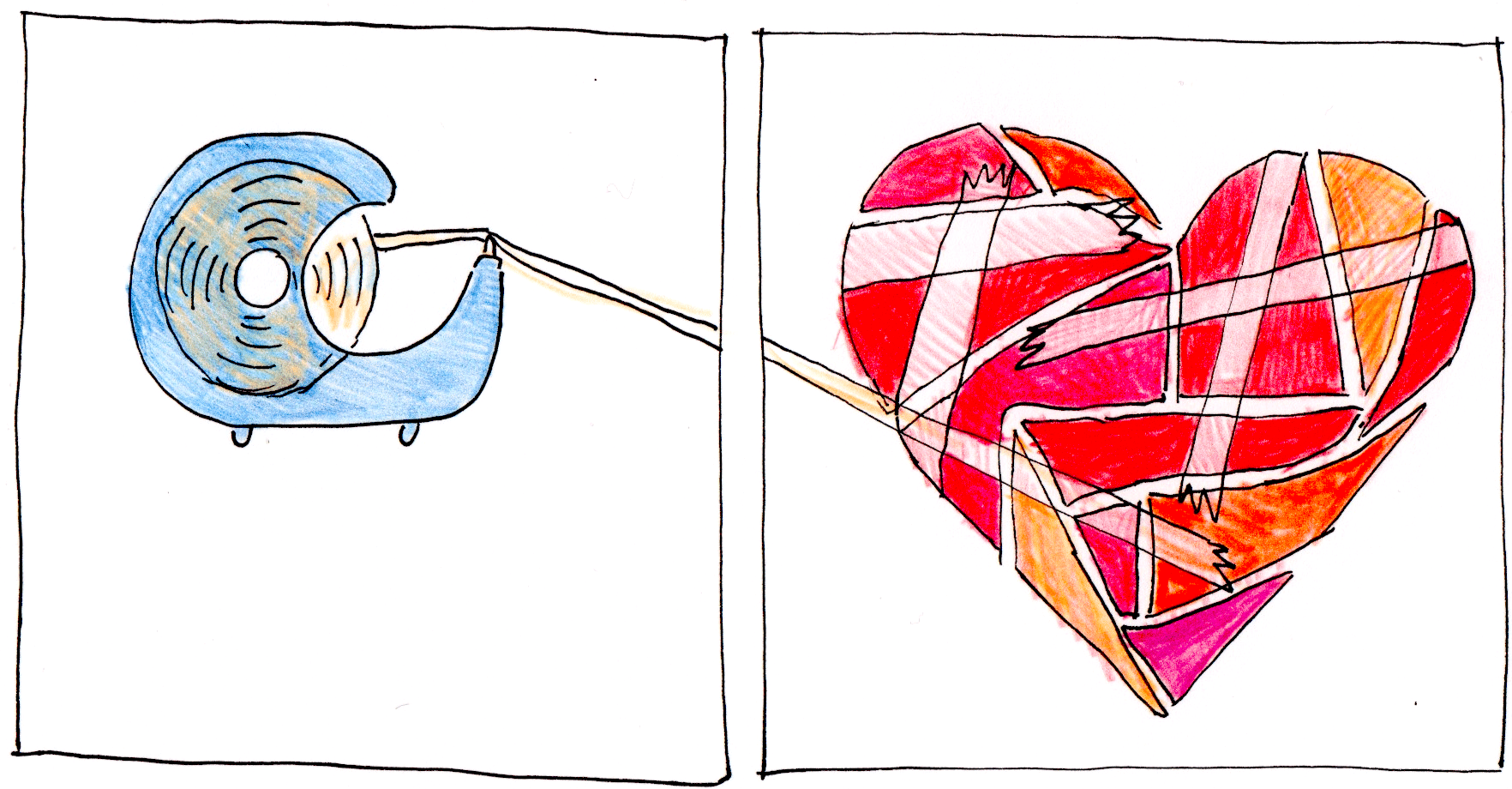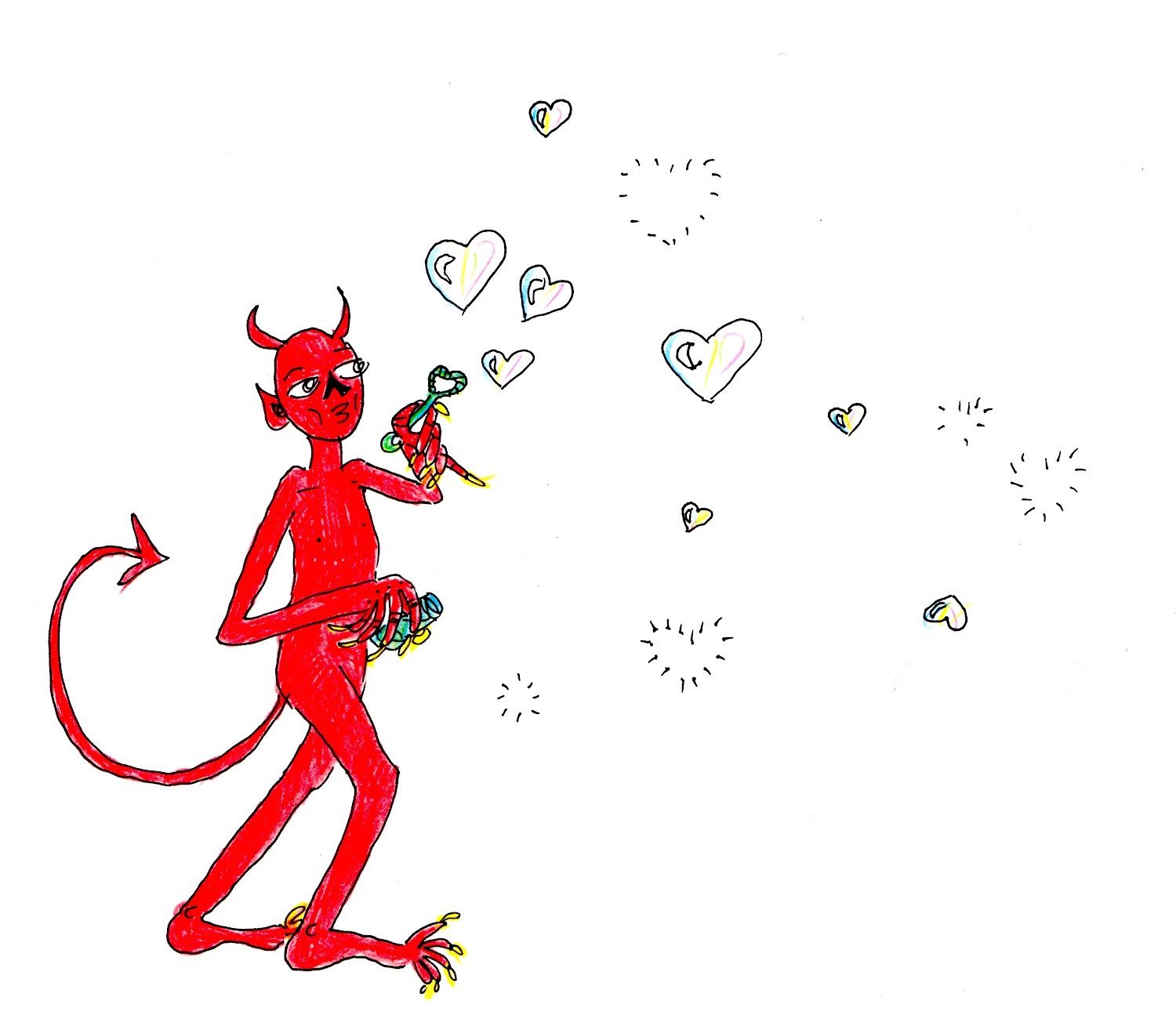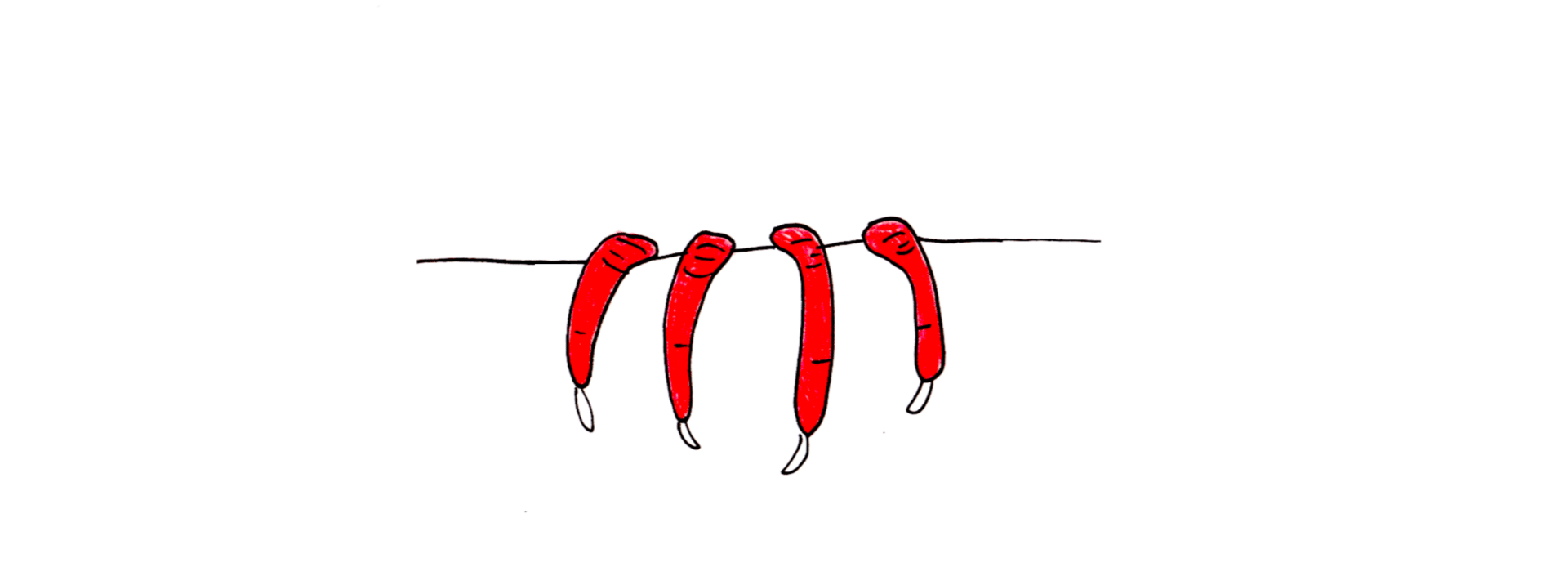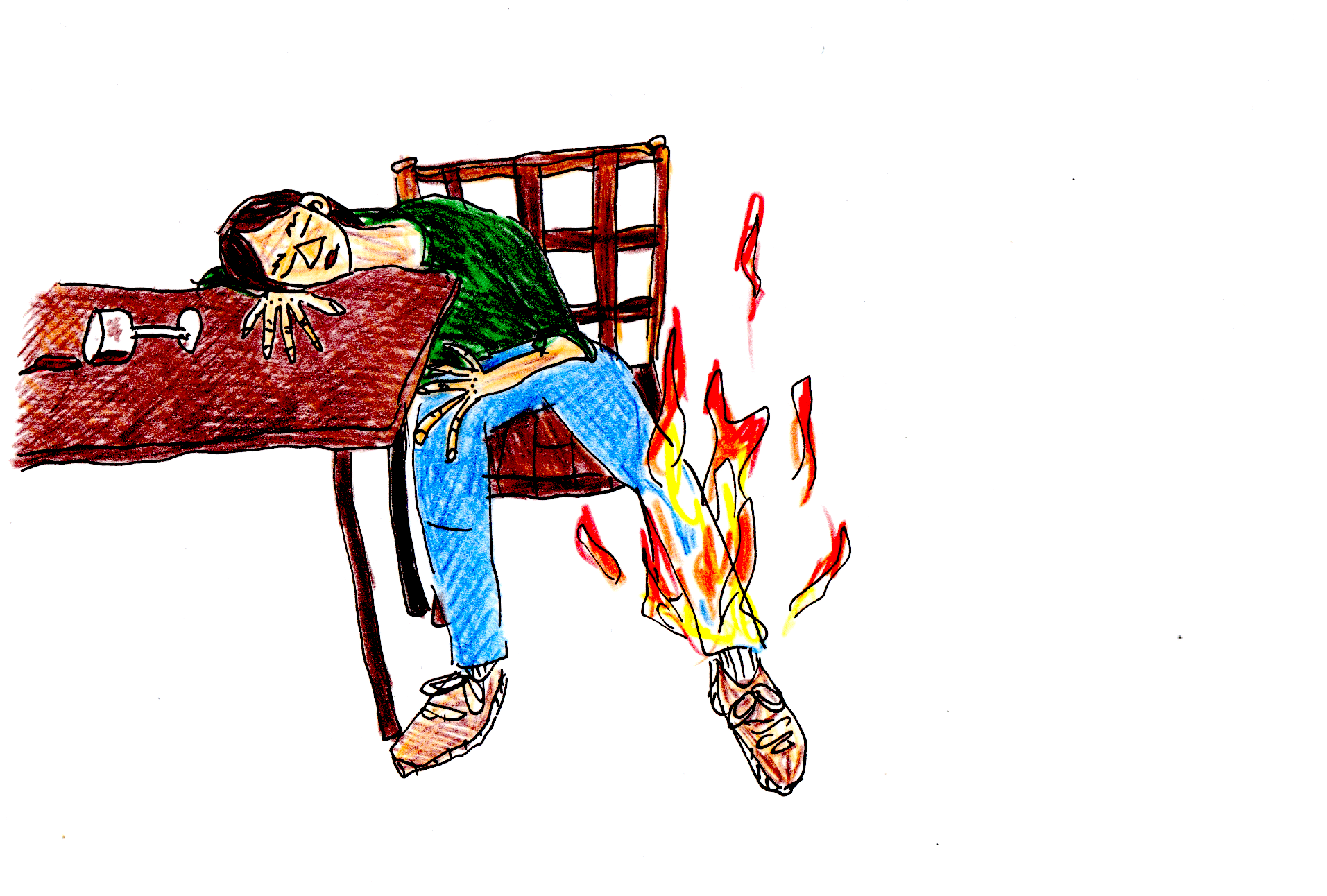
There are as many ways to love an addict as there are ways to love. But of course, common themes emerge. As with love of any kind — as with addiction for that matter — the clichés distill what is essential, true, ultimately ungraspable into words that sound almost right. It hurts and it’s beautiful. It’s flaying and it’s revelatory. You had to be there; you know it when you see it; you’d do it again; you wouldn’t.
All of which is to say nothing, a lot of throat clearing. Our Small Bow community tells it better, which is to say more specifically, below.
As with our other Check-Ins, all the Anonymous writers below are credited collectively as “The Small Bow Family Orchestra.”
The ***** separates individual entries, as do pull quotes.
Edith Zimmerman drew everything.
If the cost of a subscription is prohibitive, or if you wish to send TSB to someone you care about, please contact us. We’ll happily pass along a free annual subscription to those who need it most.
We can offer free subscriptions as long as we continue to grow. Grab a paid subscription today if you’d like to be a part of it. —TSB Editor

Absurd, Filthy, Bathed in the Light of the Spirit
By The Small Bow Family Orchestra
*****

At first, I wasn’t aware that he was an addict. I wasn’t aware that I was an addict either. We matched each other’s cycle of drinking, fighting, hangovers, and drinking again for years. It wasn’t until he proposed (and I said yes) that I realized — wow, I’m just going to live like this forever?? Five months after we got engaged, he was rushed to the hospital with severe stomach pain – turns out his pancreas was dying, and he was at risk of the same fate. After 25 days in the hospital, with 20 of those days in the ICU, he was discharged with many instructions — the most important being DO NOT DRINK ALCOHOL. EVER. AGAIN.
Alcohol lost its shine for me that day, and I’m grateful to report that we are both celebrating 2.5 years of sobriety. He white knuckled it for over a year (10 months sober at our own wedding), which to be honest was pretty miserable to be around, but still light years better than what I would deal with while he was drinking. It took an old friend reaching out no less than 10 times, suggesting he join him at an AA meeting, for his life to really change. His recovery has resulted in increased patience, understanding, empathy, selflessness, and a commitment to personal growth.
“A blessing in disguise” is what comes to mind when I think back on our journey together. Together, we have quit drinking alcohol, quit smoking cigarettes (hell on earth), and are hoping to grow our family this year. Without that beat up pancreas, who knows where we would be?
*****
I once added a neighbor to my list of addiction. And like everything else on that list, I knew better. There was the sizable age gap, his need to charm whatever stranger was on the stool next to him, his jealous and volatile roommate as just some of the reasons we shouldn’t know each other. But I never considered him being at the bar as often as I was to be quite a problem itself so I tried him out anyway.
After years of idle flirting, in a snap decision powered by drunken loneliness, I asked him out. The date didn’t go well enough to really be considered one, so we became friends and quickly crawled deep into each others’ lives. We rode bikes for miles, met each others’ friends, texted all day most days, and drank side by side most nights. I never had words to describe what we were, but pour enough booze on two people attracted to one another and the “friends” label can only hold for so long.
We talked about everything so the nature of our relationship would come up regularly when there was enough alcohol in at least one of us. He’d say that if we dated, our relationship would be wreckage. I’d reply with something mean and the feelings would die down until we were up too late again, drinking our embers back into flames. In the morning, we’d meet for “co-working” at the bar and keep going until one of us blacked out. We were never not a mess.
After enough bad behavior forced me to see clearly the levels of destruction mounting around us, I quit him cold turkey. No more chatting in the bar for hours, no more morning check-ins after wild nights. I even pretended to not see him when he was in front of me on our shared streets. When I was finally done, this was the only way I knew how to be actually done.
Walking away didn’t just break my heart. My whole body went through a violent withdrawal. I cried all the time and barely left my house. I listened to a lot of Taylor Swift and drank whiskey in bed until I got weird enough to sleep. My life stopped but the disaster continued.
Fifteen months later, I day-drank for the last time alone and out of town. When I was done, I stepped out of the bar into sunlight like a heroine finally escaping her Lifetime movie. The weeks following, I had no shakes, sweats, or regrets. It hasn’t been flawless, but I haven’t had a drink since.
I moved out of the neighborhood shortly after getting sober and live a less haggard life than I have in years. My former neighbor and I haven’t spoken since I left. Sometimes his face shows up on my social media feed and I search for the hopeful signs that he’s sober now too. Every so often, he looks more together than he did before.
*****
My first date with my wife was at a cafe, not a bar, because she’d told me she didn’t drink. I’d never dated someone sober before and I wasn’t sure if she simply preferred not to or if she was an alcoholic. It turned out to be the latter, though she kind of downplayed it at first. I later learned she already had years of stable sobriety under her belt.
The friction of this for me was that my family are drinkers. Not drunks, but our family culture really centers alcohol. It’s one of a handful of things I can reliably talk to my dad about: “How’s the new brewery up the road?” I worked in the industry at snobby beer and cocktail bars and it was a huge part of my identity. So, my future wife — if she had a capital-P Problem with alcohol, it was going to be hard or impossible to square that. Would I have to stop drinking too in order to be with her? Would I have to ask my family to stop?
It’s turned out 99% fine, though! Her sobriety is rock solid. I keep booze in the house and it’s not a temptation or a trigger for her. Twice in six years she’s asked me to stash it in my car so she couldn’t see it during especially hard moments — conservative family skipping our wedding, say — but even then I’ve felt so confident in her because she identified it well before it got dangerous.
It was scary at first, and is still a little scary now if I think about it; what would I do if things blew up? But it’s so clear to me now that she’s a different person than she was when she was drinking and has a real handle on her life and mental health. Even if she did slip up, I know we’d be able to handle it together. (And I’ve learned a lot from TSB about how I can be a supportive partner in hard times.) I’m very lucky.
*****
What is it like for a normie to love an addict?
I’ve been partnered with a recovered addict for a decade and some change. Prior to this, I was the child of an alcoholic who spent 40+ years in sobriety. So, although I’ve not found myself addicted to substances (yet), my life has included frequent, frank discussions about addiction from a very young age. The addicts I’ve loved have a unique world view that colors every facet of our relationship, because how could it not? When I am struggling with mental health symptoms, binge eating, or the general, unfocused despair that permeates so much of our lives, there is usually a sense that I don’t have to explain this misery to my partner. There’s an unspoken “I get it,” along with a heavy dose of non-judgement. He has seen The Void, and he knows its allure. That helps me feel less alone when I’m struggling.
I also relate to Amy’s perspective on “bonus time.” My partner has told me several times that he did not expect to live to 21. Now we’re talking about 40th birthday plans, starting a family, 401ks. It lends a surreal quality to everything. This bonus time cannot be construed as anything other than a privilege. And yet, I sometimes see the physical weight of living past 21 crushing him in real time. He’s seen a lot of friends die. He’s had to make decisions about risky medical care, wondering what quality of life will look like in his 40s. Living seems to present an endless litany of new, exhausting opportunities each year. “This is not my beautiful house. How do I work this?”
The defining quality I see in my beloved addicts is a deep, multi-colored pool of empathy, right at the core of their being. It’s startling to witness. The expansiveness of my partner showing grace to others catches me off guard. If I think about it for too long, I start to cry. When I consider what it must be like for him to feel that concern for other humans each day, I don’t have to wonder why it all became too much. Substance use seems like a forgone conclusion. To me, the hazards of loving an addict (and there are many) are a proper trade for a chance to see flashes of the beautiful, aching core beneath.
Thanks for listening.
*****
My story is about an addict loving an addict. My first marriage at 18 was an alcoholic nightmare. The cops were called at our “wedding reception” at our favorite bar. My father picked me up from jail and I denied we had even gotten married. After two years, lost teeth, and multiple black eyes, I knew that I could never get sober as long as I was with him.
At 23 I was sober and enjoying it. Life was bright and full of possibilities.
After a couple of months of sobriety, I went to a local bar to have a coke. I didn't know how else to meet people. Turns out I don't like drunk people, so it wasn't hard for me not to drink.
It was there that I met my 2nd husband, who was also sober. I took that as a sign that we were meant to be. During our first meeting, he talked a little bit about injecting drugs, something I did not have much experience with. Our second time together we shot up cocaine. Wow. The top of my head came off, and I couldn't believe it was possible to feel so good.
Twelve years, one child, and one wedding later — a wedding that I knew was a mistake, before we even walked down the aisle — I knew I could no longer live with all the money going to drugs. The final straw was discovering that my now-clean husband preferred to be a knight in shining armor for women early in recovery.
So many years lost. But I can't dwell on that. Now that I am clean I am lucky to be with a man who has never been drunk and has never touched a drug. What a difference.
*****
Lately I’ve been making an effort to unravel the things in my life that are stories I have spun from the threads of my defects. I was caught in a well worn narrative loop of fear-based dry drunk bullshit when my coworker, a sister in recovery, nudged me and another sober addict towards each other thinking that something would come out of it.
Despite being resolved to stay alone and guarded except for being of service to my fellows, I fell hard. A confluence of events was brewing: turning a corner on my step work, breaking the chain of codependent guilt with my dementia ridden dry alcoholic mother, and sitting in some intense sweat lodges all sent me into a state like my benders of old, unable to eat or sleep for a few days, wide eyed and seeing the hand of the divine everywhere. This man and I started talking and made plans to meet. We had encountered each other months before at the community lodge and I thought he was interesting and smart and the view was nice to boot, but didn’t give it more thought than that.
My plan to play it cool when he and I went for a walk picking berries went quickly awry. I blurted out something I seldom share, the reason I never had a problem with “the God stuff” and I didn’t realize how isolated I was without someone who could validate and give context to it. “Sick as our secrets” is real; even if the secret is beautiful and probably magical, being alone with it is corrosive.
Probably grossed some people out at the gas station where we parted ways when I had to go to work. I leapt back into his truck for a last kiss and said “once more for security!” certain that this thing of ours was David Lynch approved. It is absurd, filthy, and bathed in the light of the Spirit.
Things have calmed down for now. Himself and I were talking over coffee before sunrise and I expressed relief that I had come back down somewhat, not sure I could sustain that level of intensity for very long. He laughed and said “Oh you can . . . with drugs.” Good point. He has about seven years, myself about two. Even all throughout his using, his ancestral spiritual tradition was there, the thing my upbringing sorely lacked.
Sometimes the fear crops up that the rug will get pulled out and I should wall off and isolate but it’s physically impossible. I’m grateful I’m not repeating the old patterns, that I’m a somewhat grown up sober person with her own busy life, he with his. I admire how he shows up for his people in recovery and his tribe, I want to do the same for my own. Most of the time I’m not afraid, all of the time I’m grateful for however much of this I get.
*****
Marrying an alcoholic addict when you are 27 years old is like unwittingly becoming a sister wife. Weed and beer were there first and have seniority. They are his childhood sweethearts. You think this is a problem you can solve. You think love is a contest, like figuring out the correct combination to unlock a safe. You think cracking this code is how you will prove to the world you have a right to exist.
But you can’t figure out that combination. You are never first. He comes from their beds into yours. Most of the time they’ve worn him out and he has nothing left for you. You believe you are competing with these loves, these obsessions, these lifelong favorites for his attention and favor. You don’t realize this is a game you can never win. It has never been about what you do or don’t do. It has never been about you.
You raise two children with him. Over the years you realize it’s easier for you when he’s high and drunk because then he’s like one of your kids, and predictable. You’re so ashamed of this knowledge that it makes you hate yourself even more. But also your only self worth comes from taking care of other people and you are still trying not to die. You know how to take care of people. Well — except for yourself.
Your kids get older and they start to not need you in the same ways. But he still does, or so you tell yourself. You still believe things are the way they are because for more than two decades, you still haven’t figured out how to be good enough.
You realize you are spending more and more of your time trying not to die. Sometimes you want to stop trying and it scares you. You go to a meeting where you hear someone read a story called Understanding Ourselves. Something in you cracks open. You’ve been focused, all this time, on the wrong safe. The wrong combination lock.
You will always love him. But not in a way where you can stay and also stay alive. You’re almost fifty years old and it’s time to learn how to love and honor yourself. It’s time to learn how to be your own bride.

OUR FIRST ESSAY ON LOVING AN ADDICT:
MORE IN THIS SERIES:
*****

